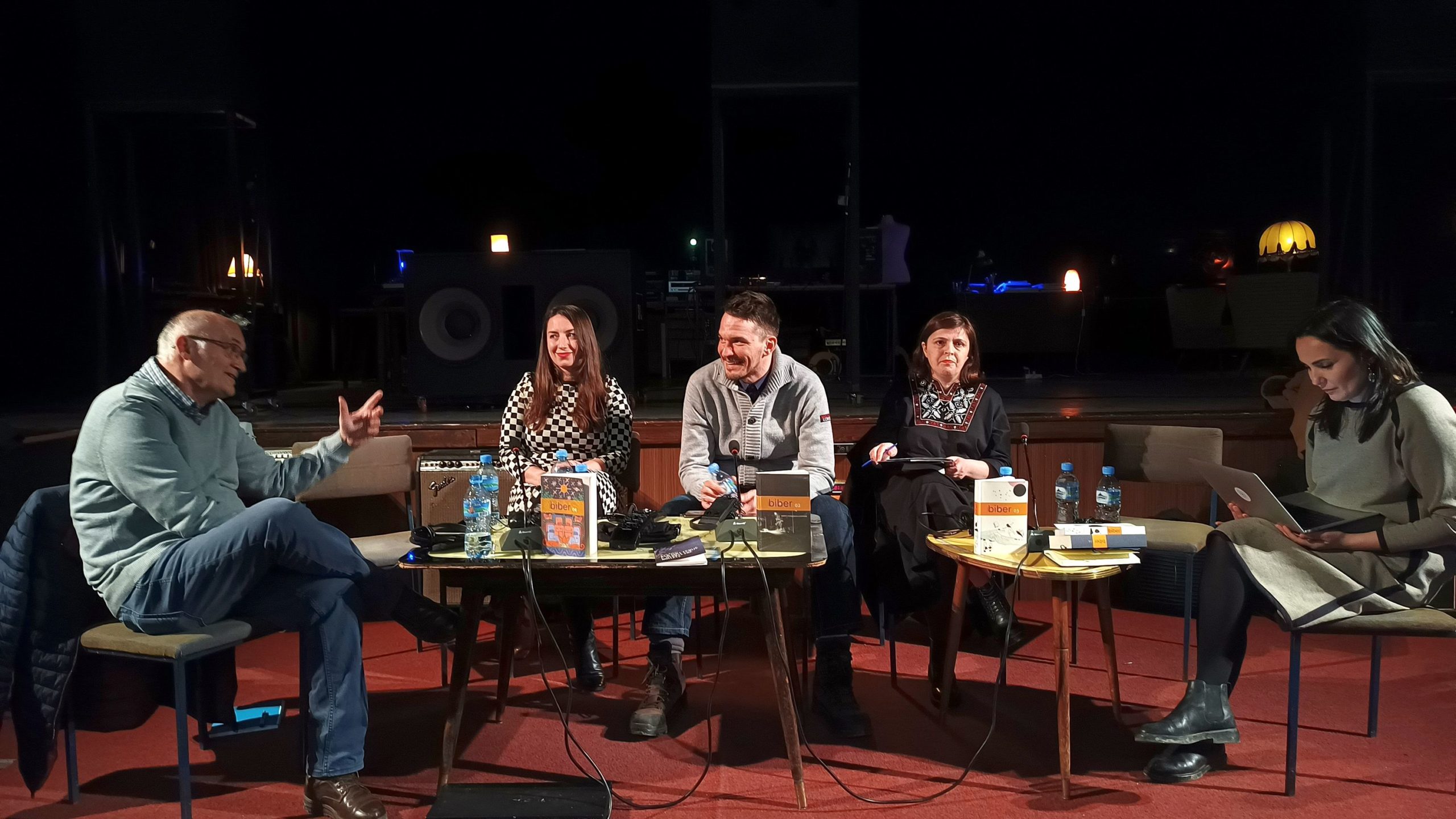The panel discussion included jury member for the Biber 03 Contest Rumena Bužarovska (Skopje), as well as authors of published stories from the Biber 03 and Biber 04 contests, Stefan Slavković (Belgrade), Ante Storić (Šibenik), Besa Kalaja (Pristina), Afrim Demiri (Ferizaj), and Ivana Franović (Biber Team, Centre for Nonviolent Action, Sarajevo-Belgrade). Linda Gusia (Pristina) was the moderator.
The promotion was organised by the Humanitarian Law Centre Kosovo and the Centre for Nonviolent Action Sarajevo-Belgrade.
Ivana Franović from the Biber Team and the Centre for Nonviolent Action said:
“Reconciliation is not a popular word and people tend to shrink away from it. But this is truly what we are doing: we are working on reconciliation, connecting people, our stories, reconciling with ourselves and what happened to us. There were so many victims in the Balkans, and they are all ours: these people are gone. We have to do everything we can to make sure this never happens again.”
Biber was conceived as a contribution to peace and reconciliation in the context of the legacy left behind by the wars in the former Yugoslavia, but also as a way to have stories translated and read in other languages of the region.
The writer and translator Rumena Bužarovska, who was a member of the jury for Biber 03, talked about the importance of writing and translating into all the languages of the region:
“Biber is an initiative that brings together who we truly are, we who live in this part of the Balkans, and I am glad to be part of it. Macedonian literature is not translated into Albanian much, and vice versa, but it is important to do this.”
Afrim Demiri from Uroševac who remembers life in the former Yugoslavia and is the author of one of the stories said that it was symbolically important for the promotion of the short story collections to be taking place at a former Army Hall that was once a place of security for some of Pristina’s citizens and a source of fear for others.
Deconstructing images of the enemy, brave stories that push boundaries, that dare to walk in the “enemy’s” shoes, these are some of the topics we welcome in the Biber Contest.
Stefan Slavković, a journalist and writer from Belgrade, spoke about this and recalled that sometimes writers can divide people, but that socially engaged art must bring together and reflect the spirit of the times.
“We have fit 50 years into a decade and the least we can do is tell our stories. When you face up to fears that will one day turn into lessons or questions, this is a process of maturing, both personally and as an artist. The stories do not say, ‘You are to blame!’ but they do ask, ‘Are you responsible?’ If war were to break out tomorrow, would you think back to the characters of the stories you read?”
Besa Kalaja from Pristina said that it was important for her to tell the other peoples of former Yugoslavia what happened to people in Kosovo during the war.
“The range of topics Biber is looking for reflects the truth. Much of the nation does not want to engage at all. Reconciliation functions by someone approaching the other side and starting a conversation. The one to start it is the one who cares about reconciliation,” concluded Ante Storić from Šibenik.
Four Biber Collections have been published so far, each with 25 short stories, and they are all available in Bosnian/Croatian/Serbian/Montenegrin, Albanian, and Macedonian. The fifth contest is under way and stories can be submitted until 1 June 2022. It is open to anyone who is inspired to write about these topics, be they already established and published authors or just starting out. Prizes are awarded to stories selected as the best by the jury.
For more information about the Contest, go to biber.nenasilje.org.
Electronic editions of all Biber collections are available at https://biber.nenasilje.org/biber-price/ and are free to download.
Tomorrow at 7 pm, Biber will be presented at Autostrada Hangar in Prizren.
Link to photo gallery: https://nenasilje.org/foto-biber-promocija-u-pristini-17-03-2022/
